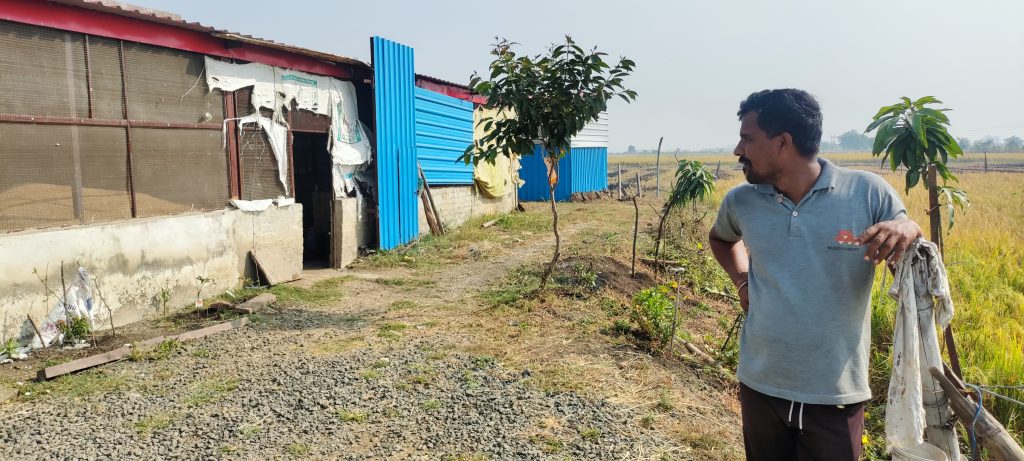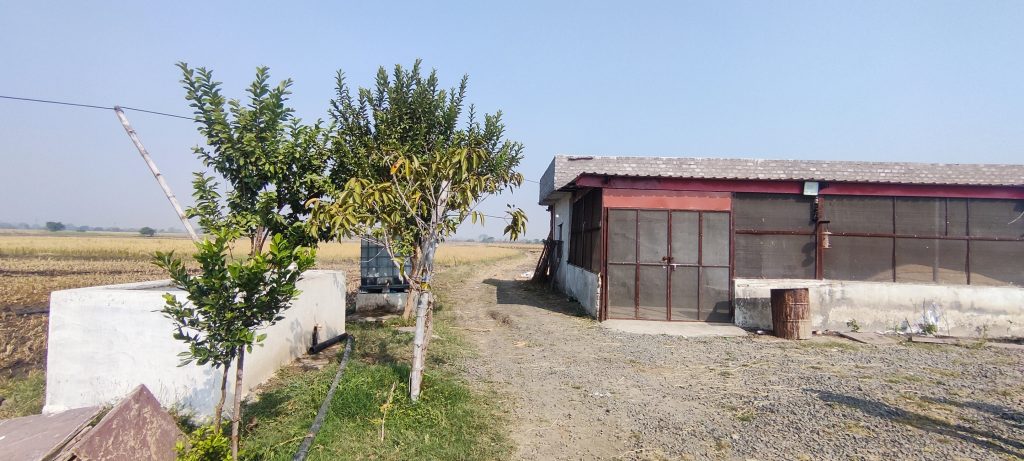
Bhopal/ Raisen : After controversies in various states over Waqf Boards claiming generationally held land holdings of villagers, now the Madhya Pradesh Waqf Board has decided to take a step further and auctioned off such lands, which it has claimed as Waqf properties.
The Madhya Pradesh Waqf Board has auctioned thousands of acres of land, declared to be Waqf property, in a state-wide exercise targeting all 55 districts over the past few months.
As part of the process, thousands of acres of land identified as “belonging to Waqf” was leased out in a process that lasted several weeks. Interestingly, it is the first year when such a wide scale auction of Waqf land has been organized across the state. Earlier such Waqf lands were handled by various Muslim organizations and trusts. From this year onwards Madhya Pradesh Waqf Board has started to handle these properties centrally, sources revealed.
While Waqf Boards in other states like Karnataka and Tamil Nadu had issued notices to farmers on their lands being claimed by Waqf, no such communication has been sent by the Madhya Pradesh Waqf Board, sources said.
The entire process was apparently conducted without making any provision for handing over the physical possession of the land in these auctions, while also not bothering to check whether these “Waqf lands” were still being cultivated by the local population.

Tehelka.com visited Gudawal, Hamidkhedi and Umraoganj villages in Raisen district of the state where over 1,000 acres of land, claimed to be Waqf properties, has been auctioned by the Board. Officials with the board claim that these are lands bestowed to the Waqf by Muslim community leaders and individuals over the past few decades and it is now in the process of leasing these out for welfare of the community.
Villagers in Umraoganj stated that the land in the area has been tilled by their families for several generations and they do not know how the Board has termed their land to be Waqf property. “We don’t know of any Waqf properties in the area. This land has been cultivated by my family for the past over twenty years and before that it was being tilled by my father,” said Khuman Singh, a local resident who grows paddy and operates a dairy farm from the land.
Most villagers were unaware of the move by the Madhya Pradesh Waqf Board to auction land in their villages as no official communication regarding the same has been made available to them. “The land here has been cultivated by our forefathers for several generations. We don’t know how the Waqf Board is claiming it to be theirs,” said Beli Ram Meena, another resident of the village. Most of the residents claimed ignorance regarding any auction process or change in ownership of land in government records and stated that no such notification has been brought to their knowledge.
And the issue of land ownership or lease isn’t just being faced by farmers, even the persons who participated in these auctions organised by the Waqf Board are feeling cheated. The Waqf Board auctioned a piece of land which was leased by a young entrepreneur Ainul Yaqeen for setting up agriculture based startups. However, he has been making the rounds of tehsildar and local police station for the handing over of the piece of land without any success so far.
“I have been trying to seek possession of this land. However, the Revenue Department is not coming forth in my support. I have already submitted over Rs 5 lakh for the land six months ago to the Board after the successful bid, but haven’t been able to get physical possession of it till date,” Yaqeen said.
Due to non-handing over of possession, Yaqeen’s plans for establishing a modern fish farm and hybrid agriculture farm with aquaponics and green houses on the leased land has currently been put on a backburner.
Interestingly, Tehsildar Umraoganj Hemendra Sharma expressed ignorance regarding any land auction or leasing process having been initiated in the villages under his jurisdiction. “I don’t have any such information. Our records do not show that this patch of land belongs to the Waqf Board. No one has informed the Revenue Department of any such land leasing program being implemented by the Waqf Board so there is no question of facilitating any land possession changes in the villages,” Sharma said.
Due to lack of coordination between various departments, the physical possession of these leased out Waqf lands has still not been handed over to the bidders. A situation that is seemingly common across various districts of the state.
Tehelka.com spoke to the Madhya Pradesh Waqf Board chairman, Sanwar Patel, who acknowledged that there were issues that needed to be addressed in the handing over of the land to auction winners. “We have written to the Revenue Department to help in the process of land transfer. However, we haven’t been able to secure their help so far on the issue of land possession transfer,” Patel added.
“We want to use the land for the welfare of the community. Unless it is put to use for society, the economic development of our people won’t be possible,” Patel said, on the need to offer land for development of agriculture based projects. He said the program was initiated to help the underprivileged youth of the community by setting up startups under various government schemes and also to generate revenue through these Waqf land auctions and use these funds for the betterment of the community. He also hoped that the proposed amendments to the Waqf Act would ensure addressing of these issues.
It is understood that disputes have arisen in most cases as people in possession of these lands are unwilling to let go of it. The Board has also not been able to seek any proactive help from the local administration and the Revenue Department. In most districts of the state, successful bidders of the land are seemingly staring at a situation similar to that of Yaqeen’s.
Meanwhile, Parliament is expected to discuss Waqf Amendment Bill in the forthcoming winter session of Parliament, which is scheduled to commence on November 25. A JPC was formed to look into the proposed amendments to the Waqf Act after opposition’s objections to the current form of the proposed legislation.
The JPC on Waqf Amendment Bill 2024 has been holding wide ranging discussions on the issue over the past few weeks and has also visited various regions of the country to hear the views of various stakeholders.
The committee’s report, likely to be presented in the Winter Session of Parliament, is expected to reflect these findings and provide recommendations for amendments to the Waqf Act.












